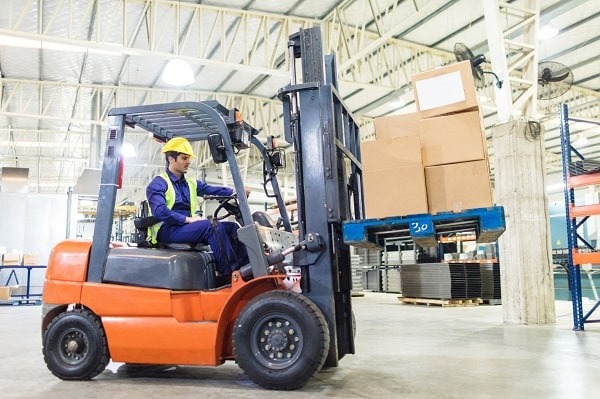What is a Forklift Operator?

A forklift operator is a skilled professional trained to operate forklifts—industrial trucks used to lift, move, and stack heavy loads. They work across diverse industries like warehouses, construction sites, manufacturing plants, and distribution centers. The primary responsibilities of forklift operators are to safely and efficiently handle materials and transport goods using forklift equipment.
Forklift operators manage the forklift’s controls to lift, lower, and tilt forks as needed to move and position loads. They understand load capacities, weight distribution, and stability to ensure loads are balanced and secured properly. In addition to forklift operation, they interpret work orders, labels, and instructions to identify and transport materials to the correct destination. Safety is crucial in this role, so operators follow safety protocols, such as wearing seat belts, using horn signals, and maintaining visibility, to prevent accidents and ensure a safe work environment.
What Does a Forklift Operator Do?
A forklift operator is responsible for the safe, accurate operation of forklifts to handle and move materials in industrial settings. They play a critical role in streamlining productivity while upholding workplace safety.
Key Duties and Responsibilities
- Operating the Forklift: Forklift operators maneuver forklifts to pick up, transport, and stack materials, following given instructions.
- Loading and Unloading: They load and unload materials—such as pallets, crates, and containers—from trucks, shelves, or storage areas. They ensure that loads are balanced and secure.
- Material Handling: Forklift operators move materials within warehouses, distribution centers, or production areas, organizing and maintaining inventory in designated storage areas.
- Inspecting and Maintaining the Forklift: They conduct pre-shift inspections of the forklift to check for any issues. Routine maintenance, such as fueling, lubricating, or part replacement, is part of their role.
- Following Safety Protocols: Safety is paramount. Operators adhere to safety guidelines, wear protective equipment, and follow safe operating practices, like maintaining visibility and avoiding sudden maneuvers.
- Communication and Documentation: Forklift operators communicate with supervisors, warehouse staff, and truck drivers to coordinate material handling. They may also document inventory movements, tasks completed, or incidents during shifts.
- Training and Knowledge: Operators must be trained in forklift operation and safety. They need to understand controls, load limits, and stability principles, staying updated on industry regulations and best practices for safe, efficient operation.
Types of Forklift Operators
Different industries require specific types of forklift operators to manage various forklift types suited to their environment:
- Warehouse Forklift Operators: Employed in warehouses or distribution centers, they handle goods movement, loading/unloading trucks, and organizing inventory.
- Construction Forklift Operators: These operators work on construction sites, moving heavy materials and equipment with rough-terrain forklifts or telescopic handlers suitable for uneven terrains.
- Industrial Forklift Operators: Working in manufacturing or industrial settings, they move materials and finished products, often using reach trucks or order pickers for narrow aisles and vertical lifting.
- Dockyard or Port Forklift Operators: At ports or harbors, they load and unload cargo from ships and trucks, using large forklifts capable of handling heavy shipping containers.
- Retail Forklift Operators: Employed in retail warehouses or home improvement stores, they manage and organize inventory for easy access and availability on store shelves.
- Cold Storage Forklift Operators: Operating in cold or refrigerated storage facilities, they are trained to manage forklifts in low temperatures for goods that need specific climate control.
- Order Picker Operators: Specialized in order picker forklifts equipped with a platform for standing, they work in warehouses, picking products from high racks for order fulfillment.
Forklift operators are essential to efficient operations across industries, ensuring materials are safely and effectively managed, whether on a construction site, in a warehouse, or at a port.
Information provided by CareerOnlines, LLC and other sources.
Sections of this page includes information from the O*NET 29.0 Database by the U.S. Department of Labor, Employment and Training Administration (USDOL/ETA). Used under the CC BY 4.0 license.
CareerOnlines, LLC has modified all or some of this information. USDOL/ETA has not approved, endorsed, or tested these modifications.